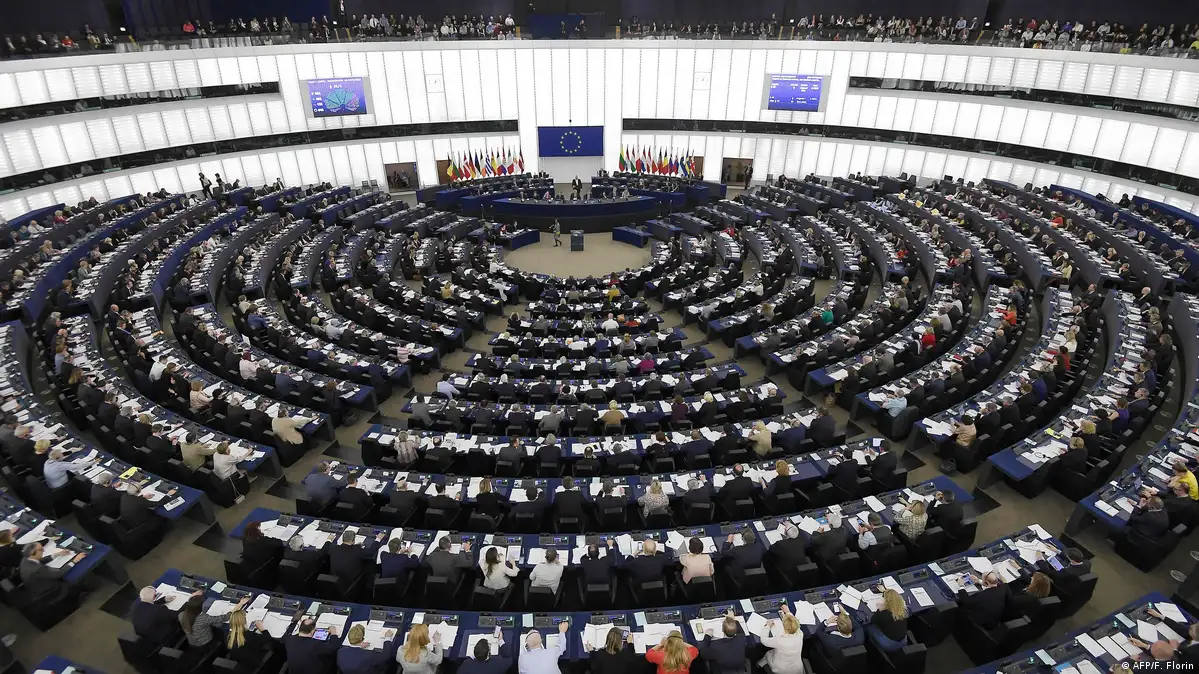AI Regulation in the European Union is nearing a pivotal moment, as the bloc stands at the cusp of establishing the globe’s inaugural laws governing artificial intelligence. These potential regulations empower Brussels to discontinue services detrimental to society, marking a significant stride in overseeing an increasingly AI-driven world.
➜ The EU’s Forthcoming AI Regulation Act
Expected to be finalized soon, the forthcoming EU AI Act seeks to regulate a broad spectrum of AI applications, ranging from AI-generated chemical weapons to copyright infringements in music, art, and literature. Negotiations among MEPs, EU member states, and the European Commission regarding the final text are concluding.
“Artificial intelligence does have a profound impact on everything we do and therefore it was time to bring in some safeguards and guardrails on how this technology will evolve for the benefit of our citizens,” commented Dragoș Tudorache, a key MEP involved in this legislation, during an exclusive conversation with the Guardian.
With a significant portion of the legislative text already agreed upon, Tudorache expressed optimism about the EU’s proactive approach to AI. However, contentious areas remain, notably regarding the application of AI in live facial recognition and the surveillance implications.
➜ Challenges with AI-Powered Surveillance
One primary area of disagreement lies in AI-powered live facial recognition. While member states advocate for its use, citing security concerns, many MEPs argue that such technology infringes on individual privacy rights, especially when deployed in public spaces. Additionally, there’s been significant pushback against AI’s emotional recognition tech, which some say invades personal privacy by interpreting facial expressions to gauge emotions and fatigue levels.
Tudorache hinted at potential compromises and emphasized the necessity of mutual concessions to address these concerns and finalize the regulations.
➜ Accountability in the Age of AI
Another pressing concern the AI Act aims to address is the unforeseen threats posed by AI, like its potential misuse in creating biohazards. The proposed regulations underscore the need for increased responsibility, not just for the end-user but also for the AI developers and providers.
You could grow your own little monster in your kitchen,” Tudorache remarked, emphasizing the potential dangers of unchecked AI advancements.
Under the AI Act, tech companies could face substantial fines, up to 6% of their revenue, or even bans from the EU if their AI tools are misused. It emphasizes that the onus of responsibility doesn’t lie solely with the user but also with the AI’s creator.
➜ Implications for the Global Tech Landscape
As the EU is poised to make a historic stride in AI regulations, tech hubs worldwide are watching closely. The decisions made in Brussels often set a precedent that other nations consider when crafting their policies.
The USA, home to Silicon Valley and numerous tech giants, stands at a crucial juncture. While American tech companies have enjoyed a relatively liberal environment for AI development, they’re not immune to the ripple effects of European decisions. Many of these companies operate globally, subjecting them to EU regulations when dealing with European citizens or entities.
Thus, even though these regulations are EU-centric, American companies must reassess their AI strategies. A failure to comply could result in significant fines, potential bans, or, at the very least, a loss of trust among European customers.
➜ Consumer Trust: The Ultimate Prize
One cannot overstate the importance of consumer trust in the era of data-driven operations. Recent years have witnessed high-profile data breaches and questionable AI ethics, leading to public apprehension.
The EU’s AI Act aims to rebuild this trust by mandating transparency and accountability. For tech companies, winning consumer confidence can lead to increased loyalty, higher retention rates, and positive word-of-mouth, all vital in a competitive market.
The USA, with its consumer-centric market, can take cues from this. Companies can foster a more trusting relationship with their user base by ensuring AI ethics and responsibility. It’s not just about compliance; it’s about building a brand that resonates with ethical considerations and societal values.
As the EU spearheads global efforts in AI regulation, it’s clear that the ripple effects will be felt far beyond European borders. This act serves as a timely reminder of the delicate balance between technological innovation and ethical considerations. For companies, especially US companies, aligning with these regulations will be crucial for compliance and to win and retain consumer trust. And as technology evolves at an unprecedented rate, global collaboration in areas like AI regulation will become even more essential. For more insights into AI developments, visit NeuralWit.


